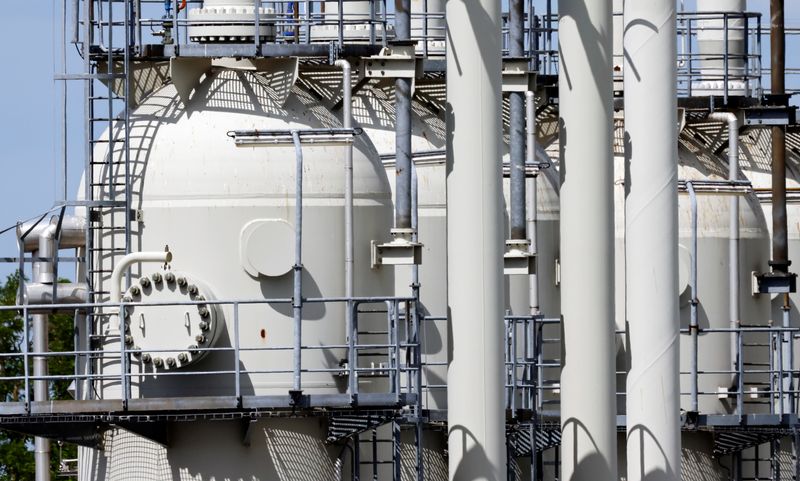FRANKFURT (Reuters) - Gas imports into Germany dropped 17.9% year-on-year in January-August 2023, utility industry association BDEW said on Thursday, pointing to savings resulting from calls to conserve energy after last year's supply crisis.
A weekly data set from BDEW showed 405 billion kilowatt hours (kWh) were imported in the eight months in Europe's biggest economy, compared with 494 billion kWh in the same period in 2022.
BDEW plans weekly updates in the winter heating season, which officially starts in October, because half of all households heat with gas and industry also consumes more in the cold season, making the economy vulnerable to supply disruptions.
The sudden halt to Russian gas imports at the end of August 2022 in the wake of Western opposition to Russia's invasion of Ukraine, was compensated for by other origins and more liquefied natural gas (LNG), accompanied by price brakes for consumers and state help for troubled import companies.
BDEW data showed it has been mostly replaced by more supply from Norway, and from and via the Netherlands.
The two countries accounted for 36.9% and 32.5% respectively of total August imports, where 20.3% came from Belgium and via three working domestic LNG terminals, and 10.3% from domestic production fields.
The six-month winter gas season 2022/23 saw consumer savings of 16% year-on-year, which helped avoid tight situations in combination with mild weather.
BDEW noted that Germany's underground gas caverns are currently 93.9% full at 237 terawatt hours (TWh) - arithmetically lasting three months - and well ahead of official legal requirements to fill the tanks to 85% by Oct. 1 and to 95% by Nov. 1.
Managing Director Kerstin Andreae stressed it was still important to use gas and also electricity sparingly.

"That (storage level) gives us security, but is no guarantee that we will get through this winter well," Andreae said.
"We're still not out of the woods."